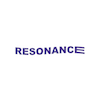It’s not every day that you come across a job recruitment company that makes recruitment sound cool and (dare we say) fun, so when we heard about Resonance, a startup itself that helps to match jobseekers with other startups and forward-thinking organizations, we were intrigued.
Resonance approaches job applications a little differently, emphasizing company culture and wanting to “match” talent and employers to make sure both are a good fit. You don’t really apply directly for a job like on traditional recruitment sites — instead, while you can indicate that you’re interested in one of their job postings, you’re still “assessed” to see if the company you want to work for would actually be one where you’d enjoy working. To do this, jobseekers are directed to a questionnaire where you answer questions like whether you’d like to work in a fun or serious work environment, if you’re the kind of worker who likes to multitask or specialize in one area, how you’d describe your own work style and values, and so on.
Curious as to how this innovative approach to job recruitment came about, Coconuts had a virtual chat with one of Resonance’s co-founders to find out more about the story behind the company, as well as their thoughts on mental health in relation to company culture, and why working at a startup might just be the way forward in today’s gig economy.
Coconuts: Hi! Can you quickly introduce yourself to our readers?
My name is Justas Rinkevicius. I’ve been living in Bangkok for the last six years. I’ve been an entrepreneur most of my life, building businesses in Europe and now in Asia.
What is the origin story of Resonance? How did the idea come about and why start in Bangkok?
Resonance is a product of Whatnot Startup Studio, an organization that I co-founded with my long time partners Kas and Matas shortly after we arrived in Bangkok. We build new startups with the vision of shaping the future of work in Southeast Asia.
The idea for Resonance came out of our own frustration when building small businesses in Bangkok. The most important part of any startup is the people that you attract. The nature of startups is that in the very beginning you are not 100 percent sure what you are building, things are changing quickly, and you need to adapt and perhaps [even] shift your business direction. The only thing that needs to be rock solid is your team. You need to trust the people that you surround yourself with during the very difficult part of the startup experience.
Also, we noticed a huge mismatch between talent and organizations when using the normal conventional methods to attract talent. It seems that companies and talent do not factor in the importance of culture fit. [As a result] they’re often left working with people they do not like on the product they would not buy themselves serving a vision that they do not believe in.
And at the end of the day, startups are losing the war for talent against local large organizations, as they simply outbid them with salaries and fancy perks.
This is why we created Resonance. It is our way to fight the power and help cool young forward-thinking businesses find ambitious young professionals so together they can build organizations that will shape the future of Southeast Asia.
So let’s start with the basics. There are a lot of job advertorial sites out there. How would you summarize what makes Resonance different from the competition in 50 words or less?
We work only with startups and young forward-thinking organizations. Our unique algorithm helps to match the right candidates with the right organizations.
Now let’s say you’re an employer who wants to list a vacancy on Resonance. Can you take us through the process? Can anyone post a listing, or do you “vet” companies first before proceeding?
We start with an online assessment that comes in the form of a questionnaire. A short gamified set of questions will allow us to better understand the personality of the company and the overall vision. We follow this with a call or meeting with our team of organizational analytics where we would continue with a bit more in-depth analysis. And voila! We are ready to match you with the best talents in Southeast Asia.
On the flipside, let’s say you’re a job applicant. After filling out the questionnaire that you guys have, what’s next? Do you have a database of applicants that you reach out to when a suitable job becomes available? How do you decide which applicants would be good matches for which positions?
Same as with companies, we have an easy assessment process for talent that would like to join our talent pool. After this, our team and our algorithm go to work to find the best possible job opportunities that fit your requirements.
Speaking of the questionnaire — we’re such a big fan! It’s obviously longer than questionnaires on other job posting sites that ask for just the basics, but the info that you ask is so important to consider when job-hunting. How did you come up with these questions?
We have actually gone through several iterations of the questionnaire building and testing. We created the questions based on several psychological research and theoretical references. After many rounds of testing, more patterns [were] identified and revealed, and our hypothesis was proved from the perspective of cultural fit. Since culture is related to people’s values, beliefs, [and] visions … it is not an easy task to uncover them and quantitatively measure them. We strive to understand people’s cultural preferences in the context of working and identify the team dynamics. There is no good or bad culture, and every team has different team dynamics and chemistry. What we’re trying to do is to help people to assess how likely they will fit and resonate with the current team, and what kind of new dynamic the new talent might bring to the team and drive the team forward.
Over the past few years, there have been stories of employees quitting their jobs (sometimes jobs they’ve been in for a long time) because the pandemic forced them to ask themselves if they’re actually happy with where they currently are. Of course, this ties into the larger topics of making sure you’re a fit with a company’s culture and the importance of looking after your mental health at work. In our experience, these are things that are (so far) less emphasized in the Southeast Asian talent pool. Can you talk a bit about how and why job-seekers should seek companies where they fit in well (instead of ones that just, say, pay a lot or are big-name organizations)?
I think that a high pay and your increased value in the job market is the circumstance of you being able to find the right job for you now. The job that fits well with your general vibe allows you to be able to give yourself to the tasks on hand 100 percent of the time — this accelerates your learning and provides a larger footprint in the job market. A small community of fellow colleagues can easily recognize your input so this allows you to gather references and a large portfolio of experiences so it becomes very easy to find the next position in case the current one does not work out.
Better mental health is the result of a functioning community where everyone is talking to each other and supporting each other. Managers can see and emphasize with all members of the community as it is much easier to do [this] where you are physically able to talk to everyone. Unfortunately, this is not always the case in large organizations.
Most of the startups are providing equity options to the talent they are working with. One additional motivator to work hard as in the case of acquisition by Google, Grab or similar or reaching the IPO the pay day is huge. So if you are smart with the way you choose your company, the financial benefits might exceed by 10 times compared to what you can earn working in the corporate world.
Some job-seekers might be hesitant to join a startup instead of an older, more established company for a number of reasons (let’s be honest: bigger companies might pay better, or people are scared that a startup might eventually fail). What advice do you have for people who might have these fears? What are the advantages of working in a startup?
The recognition of a startup as a better place to work at for the new generation of workers is here already. A recent example is [Siam Commercial Bank] SCB splitting itself into SCB and SCBx, with the latter being a more flexible organization focusing more on being a technology company with a healthy appetite for risk. This shows that even if you feel that corporate work is a better fit for you, initially working in a startup can help you to accelerate landing a better position in a company like SCBx.
Otherwise, if you are interested in making an impact with your work, you like flexibility and autonomy, you want to grow fast, you want to have equity in what you are working on, you like smaller communities and are hoping to become a young leader — working in a startup is the best way to do all of that.
Looking for a job, you can join Resonance’s talent pool here.
And check Resonance’s website here for all available jobs.
Get the latest updates by following Resonance on TikTok.






Reader Interactions